Junior NHS doctors agree deal to end strikes
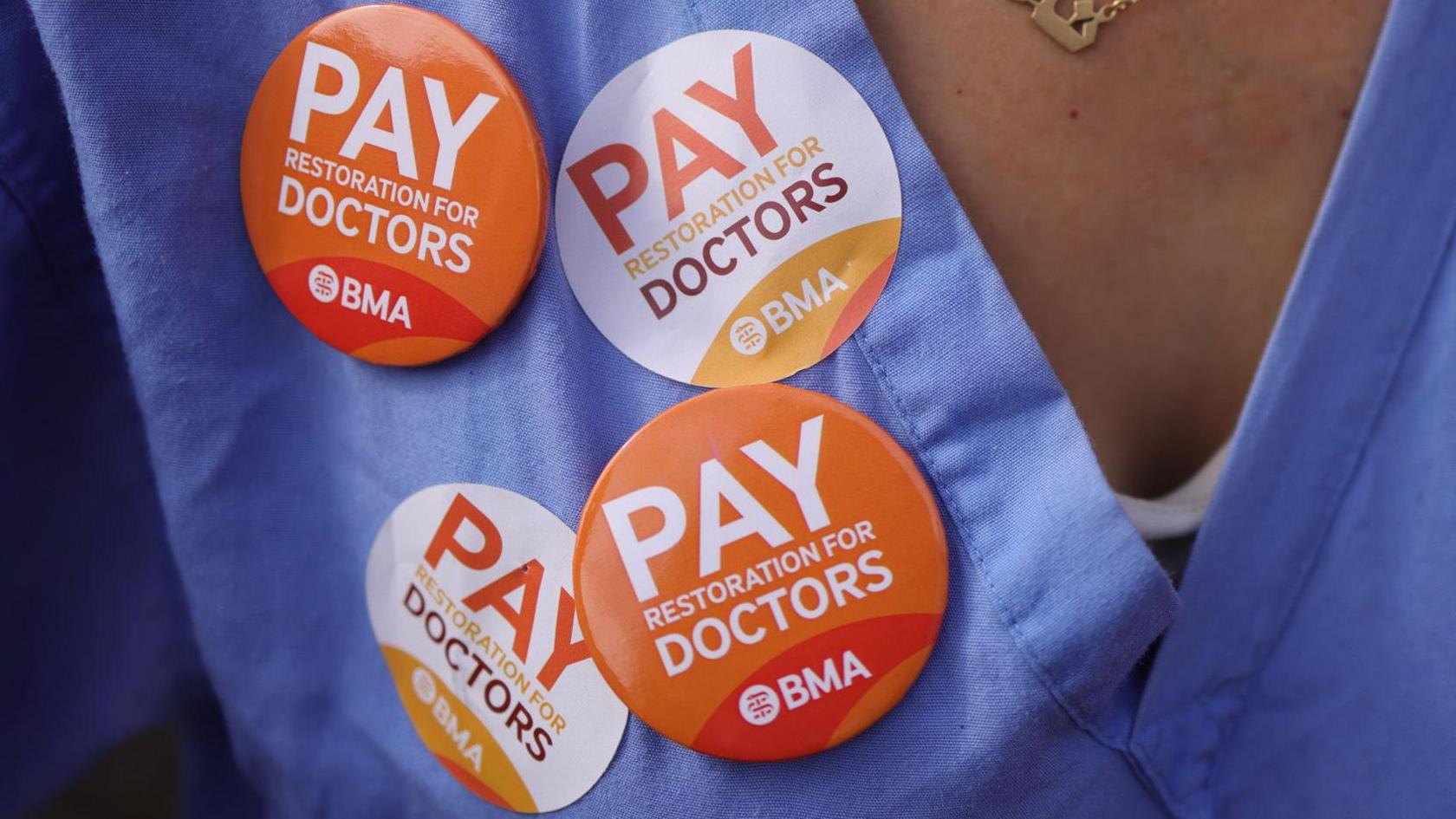
- Published
Junior doctors in England have agreed a deal with the government to end strike action.
It's been one of the longest disputes in NHS history with 11 strikes overall, resulting in 44 days of disruption across the health service since March last year.
They were organised by the British Medical Association (BMA) which represents doctors and medical students in the UK because of arguments with the government over their pay and working conditions.
Members of the BMA have now accepted an offer of a 22% pay rise over two years which was made by Health Secretary Wes Streeting in July, just weeks after Labour won the general election.
The BMA warned it expected more above-inflation pay rises in future years or there would be "consequences".
Junior Doctors Strike: Longest NHS strike yet
- Published3 January 2024
What is a strike and why do they happen?
- Published26 August 2022
75 years of the NHS
- Published5 July 2023
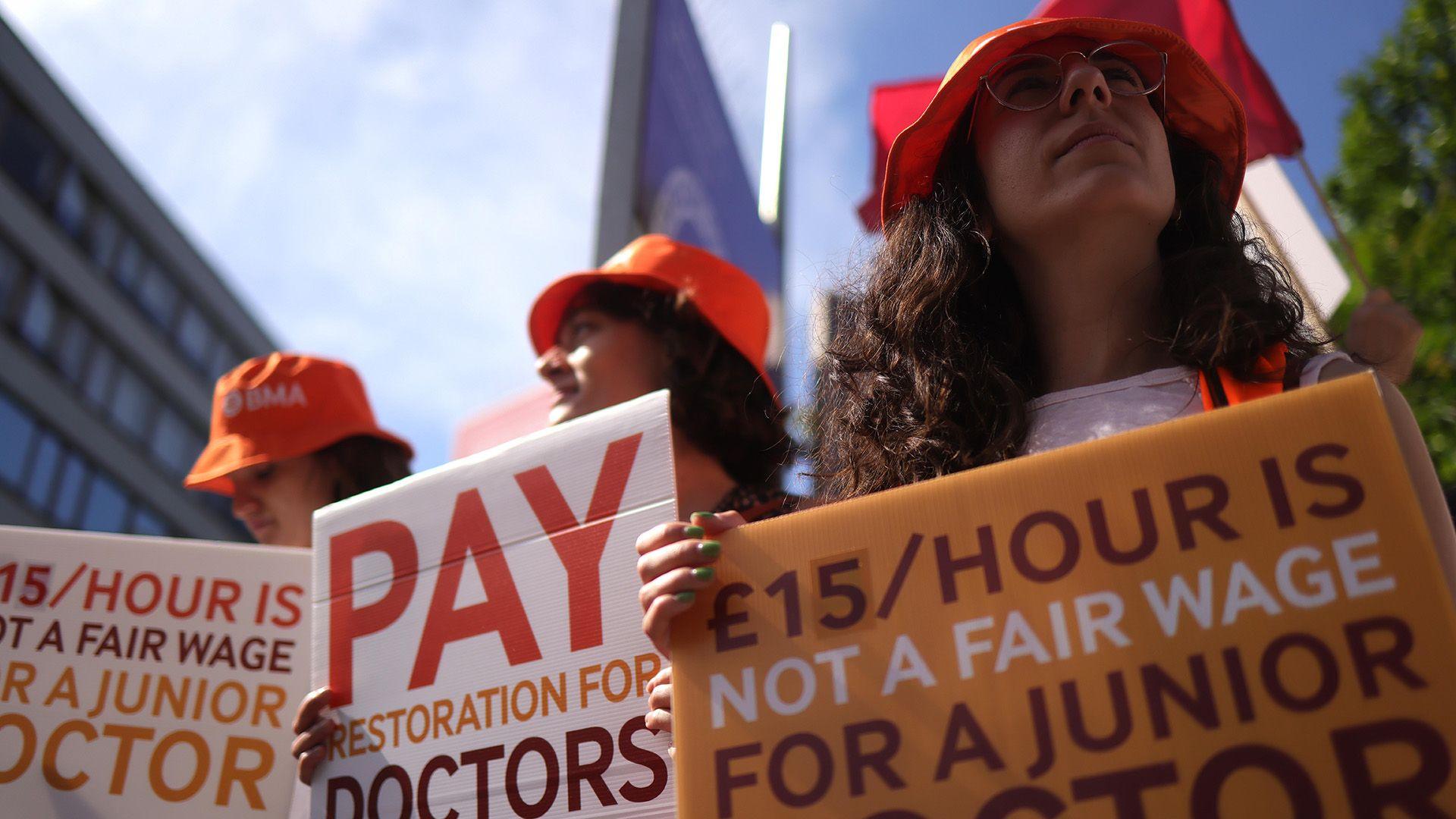
Junior doctors make up more than 40% of the medical workforce and about two-thirds are members of the BMA.
The strike action had a big impact on routine services like planned operations in hospitals.
Over the past year more than 1.2 million appointments and treatments had to be cancelled because of the strikes.
The BMA says the action was over pay and working conditions.
Why were junior doctors striking?
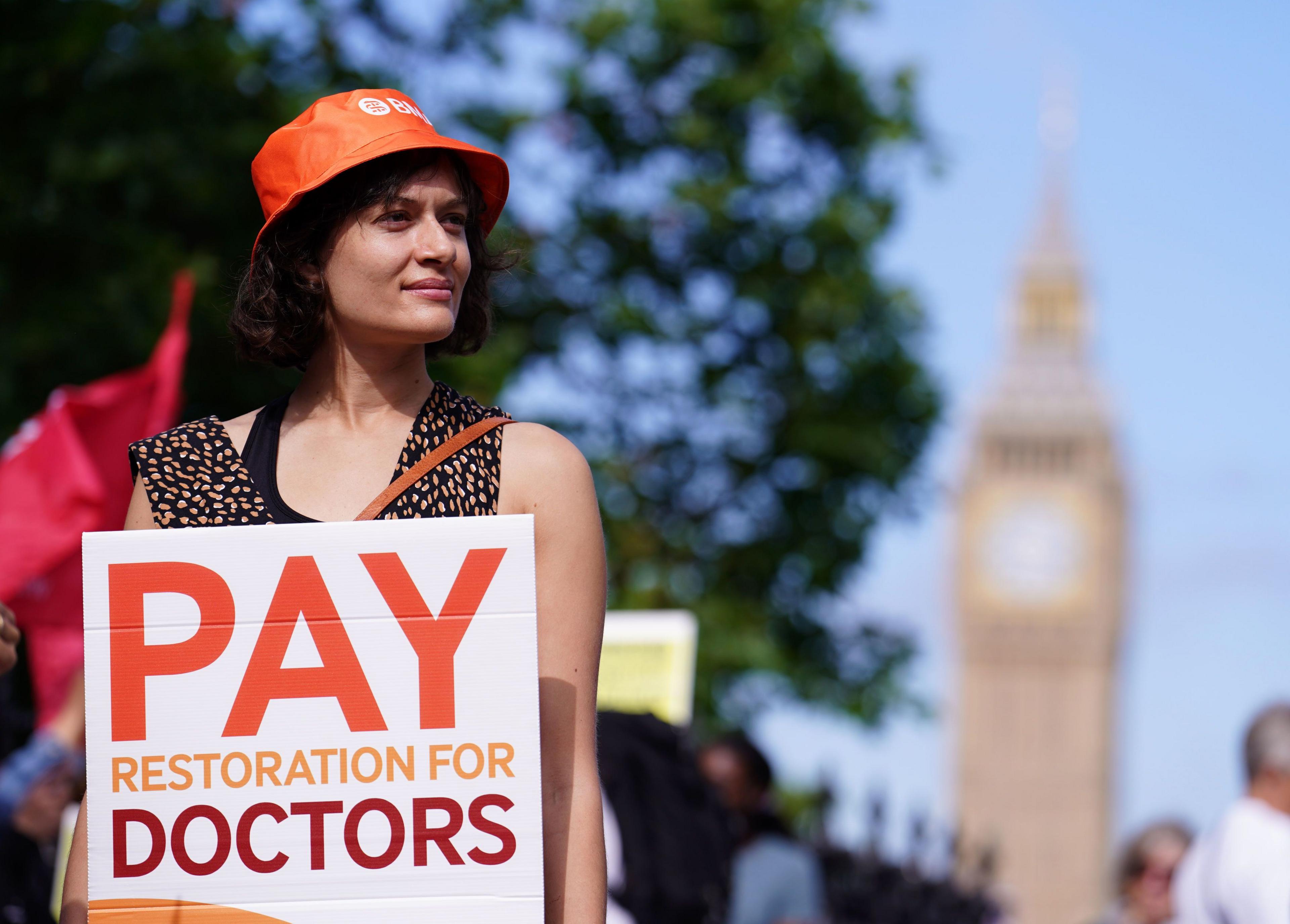
Junior doctors have been in a pay dispute with the government for 18 months
The BMA says junior doctors have seen a significant decrease in their salaries over the last 15 years because of inflation.
Inflation is when the cost of goods and services increases over a period of time, making them more expensive. This can have an impact on what people can buy with the money they make from their jobs.
The BMA argued that pay rises for junior doctors haven't been in line with the rising rate of inflation since 2008.
It also said the pay issue is making it harder to both hire and keep junior doctors in England, which is having a knock-on effect on the number of doctors working in the NHS.
The BMA had requested a 35% pay rise for junior doctors in England, but have come to an agreement on 22% over two years.
Pay wasn't the only reason doctors were striking.
Some say their working conditions are also not ideal and they're not receiving the support they need because lots of doctors across the NHS are currently leaving the profession.
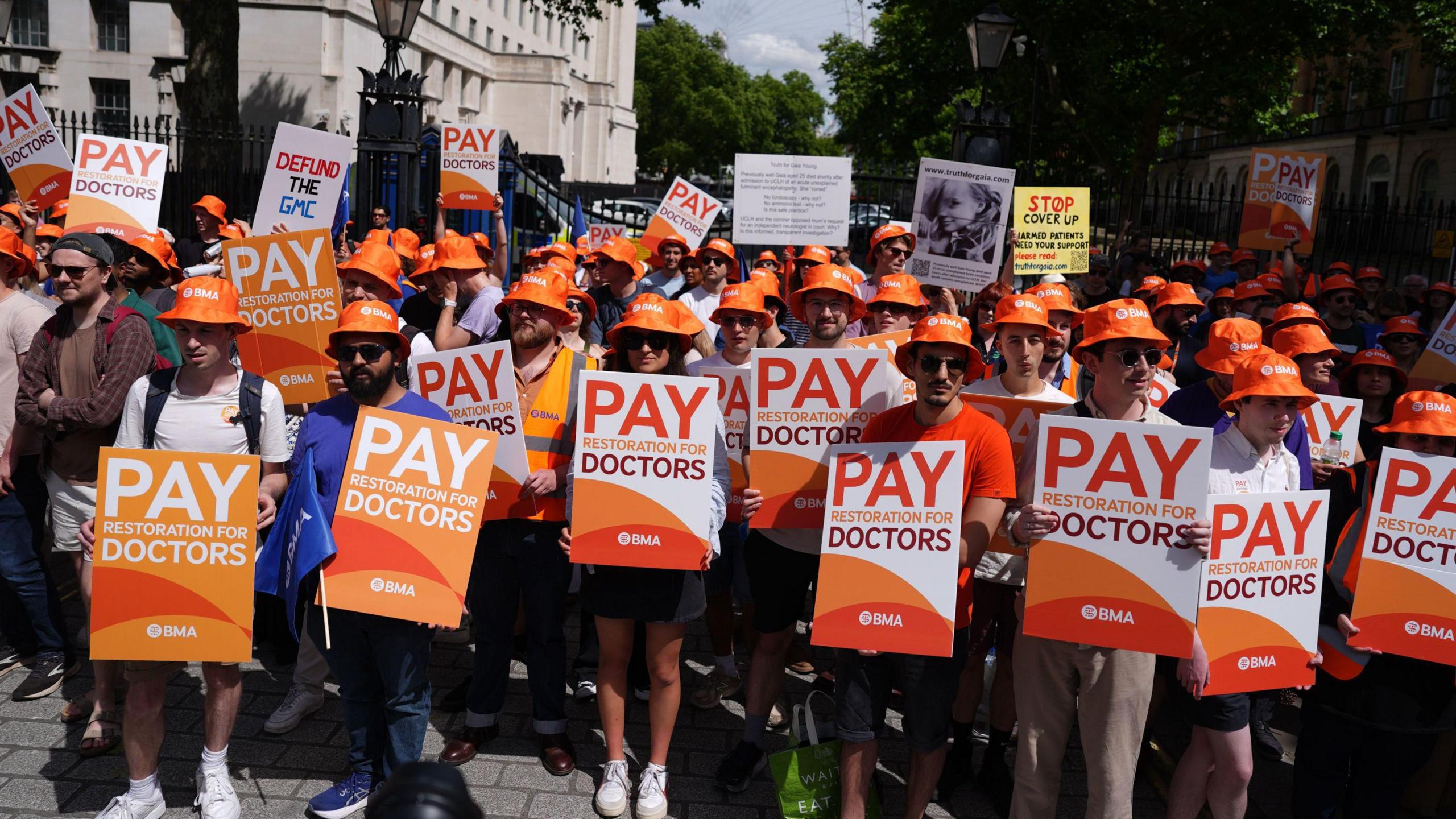
Doctors in England are the latest to accept a deal and end industrial action.
Earlier this year, doctors in Wales also accepted a pay offer from the Welsh Government, putting an end to their industrial action.
Meanwhile in August, a pay deal was reached with junior doctors in Scotland.
Talks are ongoing in Northern Ireland and no strike action is currently planned.
What has been said about the strikes?
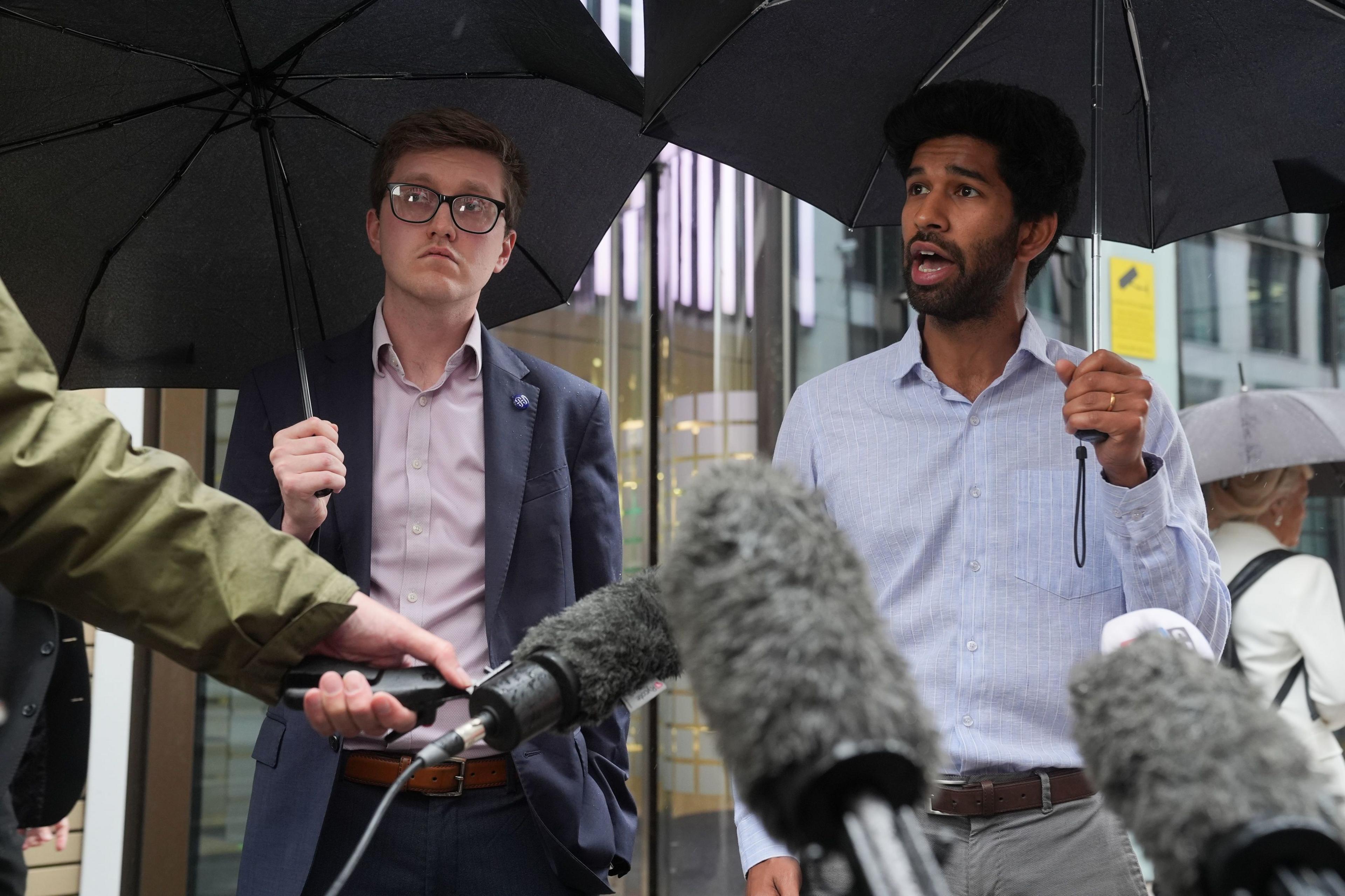
Dr Robert Laurenson and Vivek Trivedi, co-chairs of the British Medical Association's junior doctors' committee have thanked doctors on the picket line
Danny Mortimer, chief executive of NHS Employers, which represents NHS trusts, said: “Health leaders will breathe a massive sigh of relief to know that the dispute has come to a successful resolution.
“The last thing our members wanted was the threat of more strikes over what is expected to be a very difficult winter.”
Dr Robert Laurenson and Dr Vivek Trivedi, co-chairs of the British Medical Association said: “We thank all doctors who have seen us through to this point by standing on picket lines and fighting for their worth.
"The campaign is not over, but we, and they, can be proud of how far we have come.”
Health Secretary Wes Streeting said he was “pleased” the deal had been accepted, ending the “most devastating dispute in the health service’s history”.
“This marks the necessary first step in our mission to cut waiting lists, reform the broken health service, and make it fit for the future," he added.
More stories like this
- Published10 March 2023
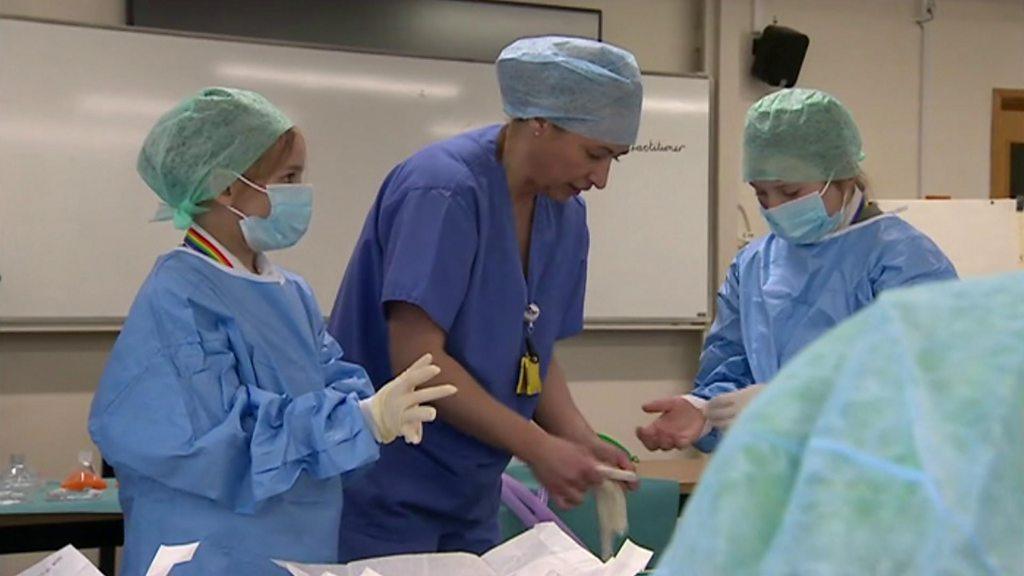
- Published6 September 2024
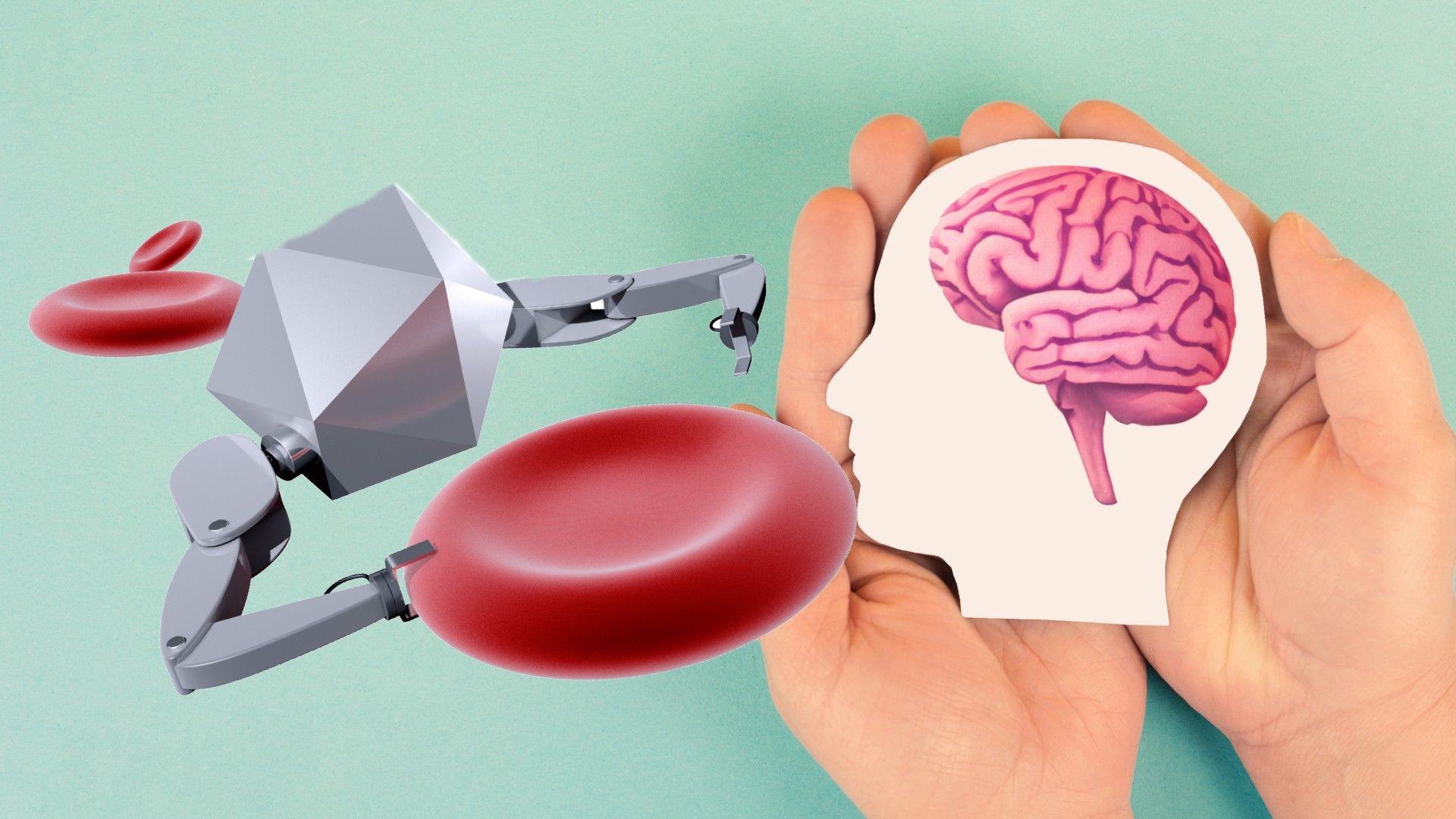
- Published3 May 2024

